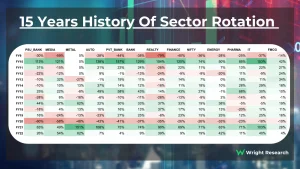
What is the difference between share market and mutual fund? Mutual fund is a pool of investors who pool their money together and invest it in a variety of different assets. The money that is invested is then managed by an investment professional (known as the fund manager). All of the investors who have invested in the mutual fund share in the profits of the fund. Both methods have their advantages and disadvantages. If you are new to the share market, it’s best to first learn as much as you can about both.
The share market is a marketplace where shares of many companies are bought and sold. In general, buying a share in a company means you’re becoming a shareholder of that company. In turn, your ownership percentage is based on the amount of money you invest in it. If the company makes a profit, you’ll receive double the money that you invested. Otherwise, you’ll get nothing back. This is because shares fluctuate in value.
In addition to mutual funds, the share market also offers other types of investments. Direct investment is in stocks and bonds, while indirect investment is in mutual funds. Both methods offer a degree of protection against the risk of losing money. In addition to direct investment, you can invest in All Types of Insurance and Loans. If you have more money to invest, a mutual fund may be more advantageous for you. If you’re looking for a stable investment vehicle that will provide an excellent return, a mutual fund may be right for you.
A mutual fund is less risky than investing directly in stocks. The manager of a mutual fund will invest it into many different shares. While it’s true that there’s the possibility of losing money in a few of the shares, overall, mutual fund investments are safe and steady. Thousands of users have found success with mutual funds. It’s time you knew more about these funds! The following article will explain the differences between mutual funds and shares.
The difference between an equity fund and a debt fund is the tax treatment for the gains earned on a mutual fund. In the short term, capital gains are taxed at 15%, while long-term capital gains are taxed at 10 percent. Both tax rates are applicable to equity funds, but the latter is the safer option. Regardless of which type you choose, it is essential to assess your risk tolerance before investing. While equity funds provide higher returns over the long term, debt funds offer lower returns.
The biggest difference between a mutual fund and a share market is their objectives. Mutual funds invest in bonds and stocks, while shares are individual investments. Share market returns are often higher, averaging between 14 to 16 percent. Mutual funds, on the other hand, have lower volatility. A mutual fund can earn higher than 8% in some years, while a share market can go as low as minus 2%. This difference makes mutual funds an ideal choice for beginners.








